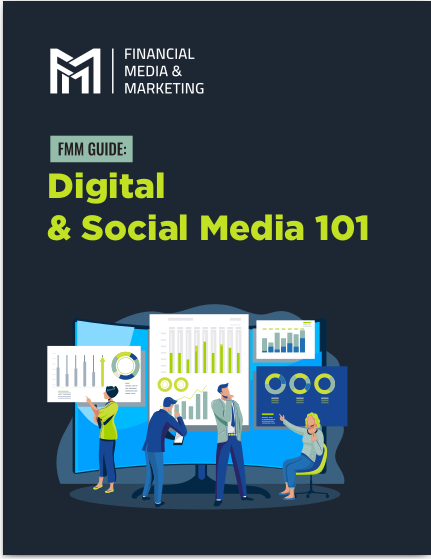Key Takeaways
-
Managing your online reputation is crucial for financial advisors, as it directly impacts client trust and engagement.
-
Learning to handle negative feedback effectively can turn challenges into opportunities to strengthen your brand.
Why Your Online Reputation Matters More Than Ever
In today’s digital world, your online reputation is often the first impression potential clients have of you. Whether it’s a glowing review or a critical comment, what people see about you online can make or break their decision to work with you. For financial advisors like you, trust is everything, and your reputation is a vital part of building that trust.
Your online presence, from client reviews to social media posts, reflects your professionalism and credibility. But with that visibility comes responsibility. Understanding how to take control of your reputation and respond to feedback, especially the negative kind, is an essential skill in building long-term relationships with your clients.
Building a Positive Online Reputation
Start With a Strong Foundation
Your online reputation begins with your brand. Ensure that all of your online profiles—from your website to social media—are professional, up-to-date, and consistent. Clients want to see that you’re transparent and knowledgeable, so highlight your expertise and accomplishments.
-
Optimize Your Website: Make your website user-friendly, with clear navigation and detailed information about your services.
-
Engage on Social Media: Share useful content regularly, such as financial tips, market insights, or updates that showcase your expertise.
Collect Client Feedback Proactively
Positive reviews don’t appear out of thin air—you need to encourage your satisfied clients to share their experiences. Here’s how:
-
Ask Directly: After a successful interaction, politely request clients to leave a review.
-
Make It Easy: Provide direct links to your review platforms, such as Google or LinkedIn.
-
Follow Up: Send a thank-you note to those who take the time to write a review.
Handling Negative Feedback Like a Pro
No one enjoys receiving negative feedback, but it’s inevitable. The good news? How you handle it can make all the difference.
Take a Step Back Before Responding
Negative feedback can sting, especially if you feel it’s unwarranted. Before you reply, take a moment to cool off and review the situation objectively. Responding in the heat of the moment can escalate the issue, so approach it with a calm and professional mindset.
Respond Publicly, Resolve Privately
Acknowledge the issue publicly but resolve it privately. This shows you’re willing to address concerns while keeping the finer details discreet.
-
Example Response: “Thank you for bringing this to our attention. We’re sorry to hear about your experience and would love to make it right. Please reach out to us at [contact information] so we can assist you further.”
Learn From the Feedback
Sometimes negative reviews highlight areas where you can improve. Take constructive criticism as an opportunity to refine your services and show clients that you value their input.
Strategies for Long-Term Reputation Management
Monitor Your Online Presence Regularly
You can’t manage what you don’t measure. Regularly monitor your online presence to stay ahead of potential issues.
-
Set Up Alerts: Use tools to get notifications whenever your name or business is mentioned online.
-
Audit Reviews: Regularly check your review platforms to address feedback promptly.
Be Transparent
Clients appreciate honesty and transparency. If you make a mistake, own it and show how you’re taking steps to improve. This builds trust and demonstrates accountability.
Stay Consistent
Your online reputation is built over time, so consistency is key. Post regularly on your blog or social media, and ensure your messaging aligns across all platforms. This helps clients feel confident in your reliability.
Preventing Negative Feedback
Set Clear Expectations
Many misunderstandings arise from unclear communication. Be upfront about your services, fees, and timelines to avoid confusion.
Follow Up With Clients
Don’t wait for clients to come to you with concerns. Regular check-ins show you care about their satisfaction and give you the chance to address issues before they escalate.
Turning Negative Feedback Into Positive Outcomes
Negative feedback doesn’t have to be the end of the world. In fact, it’s an opportunity to showcase your professionalism and problem-solving skills.
Use It as a Learning Tool
Take a step back and assess whether the feedback highlights genuine areas for improvement. By making necessary changes, you show that you’re committed to growth.
Highlight Positive Outcomes
When you resolve an issue successfully, share the outcome. This not only reassures the client involved but also demonstrates to others that you’re dedicated to client satisfaction.
What Financial Advisors Should Avoid
Ignoring Feedback
Failing to address feedback—especially negative comments—can harm your reputation. It gives the impression that you don’t value your clients’ opinions.
Arguing Online
Getting defensive or argumentative can make matters worse. Always remain professional, even in the face of unfair criticism.
Overpromising
Avoid making promises you can’t keep. Transparency and honesty will always outweigh overblown claims.
Building Resilience Through Reputation Management
Reputation management isn’t a one-time task—it’s an ongoing effort. By proactively managing your online presence, responding thoughtfully to feedback, and continuously improving, you’ll build a reputation that not only attracts clients but keeps them loyal for the long haul.
Remember, your online reputation is an extension of your professionalism. Handle it with care, and you’ll set yourself apart as a financial advisor who values trust, accountability, and exceptional service.










